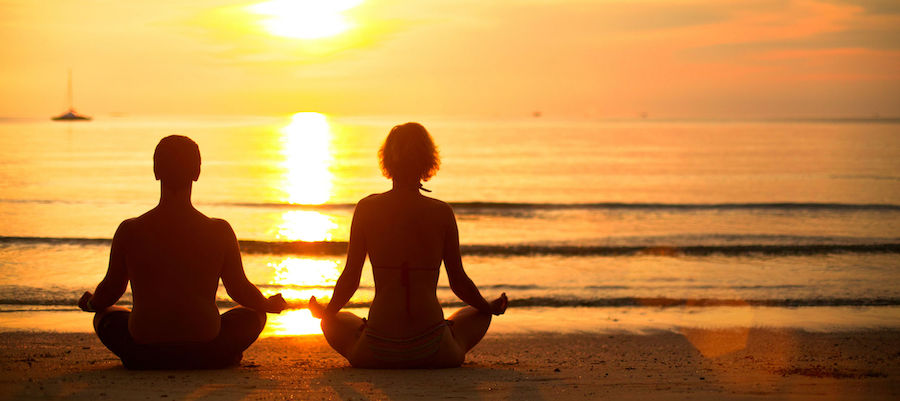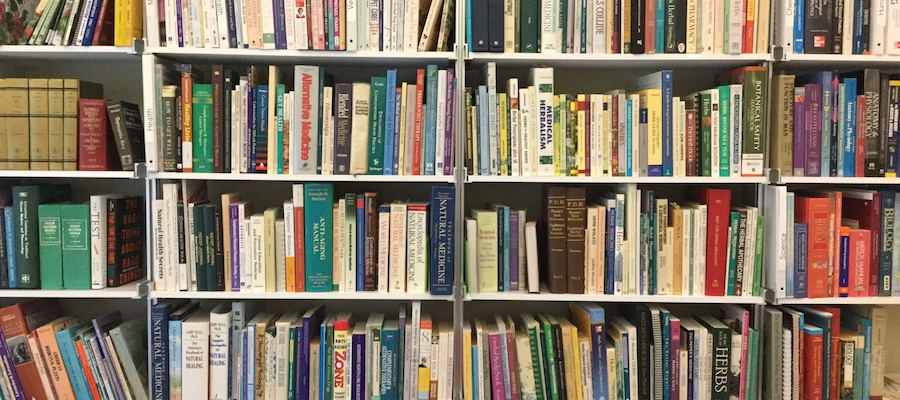3 Bold Green Living Tips that Will Improve Your Life & the Earth
Image Copyright: Matthew Gibson / 123RF Stock Photo
We recently published a post on 3 powerful and simple ways you can “go green” as you prepare for Earth Day. Did you incorporate those tips into your routine and are ready for “next-level” green living? Or, are you already a green genius and want to dig deeper into an eco-friendly, low-output lifestyle?
Wherever you’re at in your green living journey, here are 3 more green living tips that will take your sustainability and wellness game to the pro level.
1. Kill Your Lawn (And Grow Food)
How much water and resources your lawn consumes likely depends on where you live.[1] But, there’s no area of the U.S. that is immune to drought or water scarcity. So, conservation should have a seat at everyone’s dinner table, along with a bounty of fresh foods, of course!
In the words of Mother Earth News, “Kill your lawn and grow food.”[2] Yes, gardens require water, but they also reduce your overall carbon footprint by keeping your food source seasonal and local.
Plus, permaculture—or, the development of agricultural ecosystems that are sustainable and self-sufficient—can add a lot of natural beauty to the landscape around your property, as well as provide healthy foods that benefit the whole family or community.
Our “7 Secrets About Compost Every Gardener Should Know” is a great place to start—learn about how to properly create and use compost, as well as some hard-working herbs to heap onto the pile.
2. Minimize Your Mansion
This next recommendation isn't for everybody. But, if you’re looking for a real green living game-changer, you might be ready to migrate into a mini-mansion. They’re also fondly referred to as “tiny houses.”
The tiny house trend is really a social movement to downsize. According to the website The Tiny Life, tiny houses “enable simpler living in a smaller, more efficient space,” and address “environmental concerns, financial concerns, and the desire for more time and freedom.”[3]
Additional potential benefits of tiny living include[4]:
- Less clutter (like clothes you don’t wear or necessarily like … see above!)
- Less cleaning
- Less money spent on utilities
- Less of a carbon footprint (tiny homes tend to be green homes)
After living in a 300 square foot tiny home with her partner and their cat, here's what ACHS Registrar’s Assistant Madi Bourdon has to say about tiny living:
“We started composting and had a water saving toilet, (the sink was on top of the toilet) and installed garden boxes so we would have to option to eat more from the earth versus always buying!
“We spend close to nothing on utilities, and were able to get rid of A LOT of things we thought were necessary. You really learn a lot about yourself in 300 square feet with your girlfriend and cat.
“With less room, you are almost forced to get outside in the community, which was great!”
While Madi learned a lot from tiny living, she and her girlfriend eventually decided to upgrade to a bigger space. “We just moved. […] We have more than double the room and we feel like we live in a mansion.”
Maybe tiny living is for you or maybe not. Or, maybe you're like Madi and it's for you...but only for a little while.
3. Go Trash Free (For Reals)
Is going trash free really possible? Turns out, the answer is YES. But, it’s not especially easy; it requires a substantial shift in how you live and buy over time. A popular leader in this movement is Trash Is For Tossers. Business owner Lauren Singer lives a zero waste lifestyle, which she describes as zero garbage: “No sending anything to landfill, no throwing anything in a trash can, nothing.” But, she does recycle and compost.
Bea Johnson is another popular voice in this community. Owner of the blog and book Zero Waste Home, Bea is a zero-waste expert who advocates a simple guideline: “Refuse, Reduce, Reuse, Recycle, and Rot (and only in that order).”
But if the idea of “zero” has you feeling more zany than zesty, we hear ’ya. It's a huge commitment. Here are some ideas for how you can make the move towards going trash-free without having to give up your favorite things[5]:
- Shop locally at your co-op or farmer’s market, which reduces the amount of packaging you buy with your produce
- Compost, compost, compost your waste!
- Invest in re-usables like mason jars and cotton shopping bags
- Clean up your diet by focusing on fresh, whole foods instead of pre-made packaged foods
- Switch to natural, earth-friendly personal grooming products like a bamboo toothbrush or a re-usable safety razor
What are your green living tips? Share your ideas and green hacks with us on Instagram or Facebook!
Sustainability is a core pillar of our mission and vision at ACHS. Did you know sustainability and environmental stewardship is covered in our HERB 101 Basics of Herbalism Online course? Help educate and coach others to care for their bodies and the earth by enrolling in a holistic health and wellness course at the American College of Healthcare Sciences.
[1] You can use a tool like this one to calculate your total water footprint: https://www.watercalculator.org/
[2] Bloom, J. (2017, June/July). 9 permaculture practices. Mother Earth News. Retrieved from https://www.motherearthnews.com/organic-gardening/permaculture-practices-zm0z17jjzsor
[3] https://thetinylife.com/what-is-the-tiny-house-movement/
[4] Levin, H. (2012, November 26). Living in a tiny home: Benefits & drawbacks. ABC News. Retrieved from http://abcnews.go.com/Business/living-tiny-home-benefits-drawbacks/story?id=17742823
[5] Mu, S. (2017, January 30). Transition to a zero waste lifestyle with these 10 basic steps, Retrieved from https://medium.com/laconia/transition-to-a-zero-waste-lifestyle-with-these-10-basic-steps-57e345499fef
Disclosure of Material Connection: I am the Dean of English and Director of Communications of American College of Healthcare Sciences, the Institution that publishes this blog. However, all opinions are my own. This blog may contain affiliate links. I am disclosing this in accordance with the Federal Trade Commission’s 16 CFR, Part 255: “Guides Concerning the Use of Endorsements and Testimonials in Advertising.”
This article is for informational purposes only. It is not intended to treat, diagnose, cure, or prevent disease. This article has not been reviewed by the FDA. Always consult with your primary care physician or naturopathic doctor before making any significant changes to your health and wellness routine.







